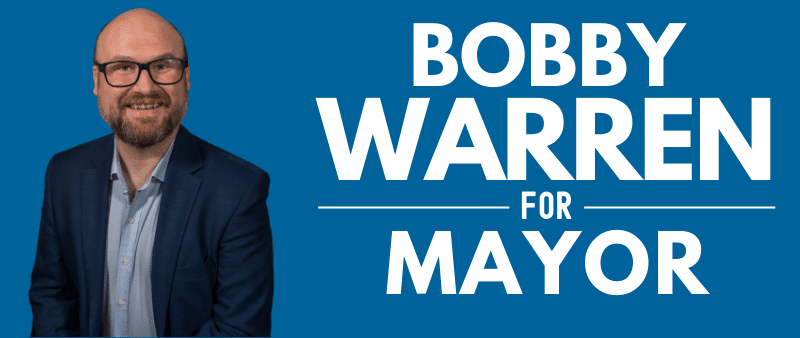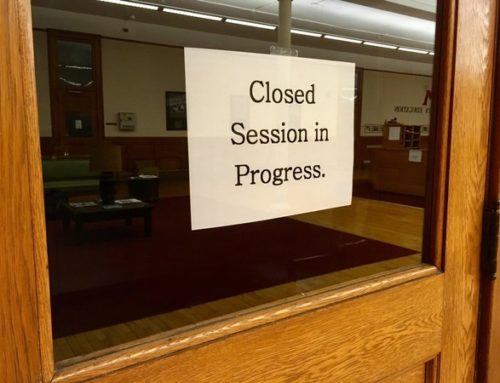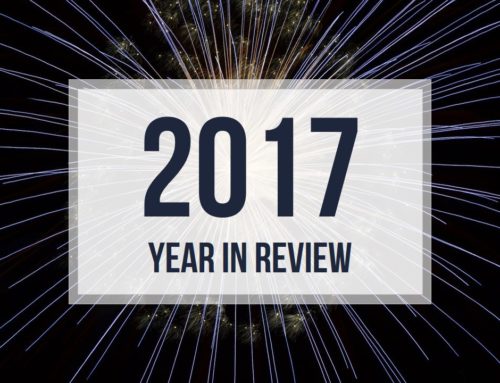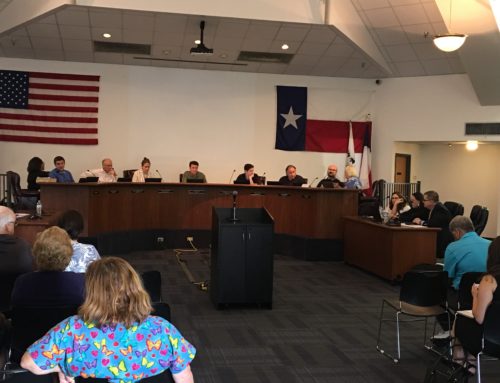The story of our lives is often defined by a series of choices. I’m sure if you think back on some of the major choices you made in your life, you can also appreciate how your life may have turned out dramatically different if you made a different choice. Where you chose to go to college, where you chose to go to work. Who you choose to date or marry. Some of the other decisions that made a big difference in your life may be choices that didn’t seem all that significant at the time.
Our ability to make good choices rests upon many factors, but ultimately the amount and quality of the information made available to you often affects those decisions more than any other factor. When it comes to city government in Jersey Village, our city council makes a number of decisions every single month. We receive a wealth of information from our city staff that helps us to understand the impacts that those decisions will have. If you have ever reviewed any of the meeting packets made available to city council each month, it often runs hundreds of pages in length. I couldn’t imagine how we could do a very effective job if we didn’t have that information readily available and in an easy to use format.
Each member of the Jersey Village City Council is in a position to make those decisions because a majority of voters in Jersey Village made the decision to vote for us. But where do citizens get the information they use to evaluate how their city government is functioning and whether their elected officials are effectively representing their interests? How do you, as a taxpayer, know whether you are truly getting the most value from local government for your tax dollar? Ultimately, transparency is the key to making good decisions each and every May about who represents you on Jersey Village City Council.
Why Transparency is Even More Important in a Small Town
While someone might think that transparency more important in a large government entity like the federal government or the State of Texas, in reality it’s even more important for local government in small towns such as Jersey Village.
There is no lack of media coverage of the activities of our federal government or our state government. Whether you turn to a newspaper, magazine, television program, or any number of resources available online, there is ample media coverage for these levels of government because of the large numbers of people who express an interest in the activities of those governments. Unfortunately, the reality is that media coverage of what happens on the Jersey Village City Council is spotty at best. As a general rule, there are only two media outlets that cover local government in Jersey Village: the Houston Chronicle (through its neighborhood coverage, also known as the “Cypress Creek Mirror”) and Community Impact Cy-Fair. If you look through the pages of these publications, however, you will usually find very little information about what local government in Jersey Village is doing. There may be the occasional story about a city council meeting, but the descriptions are brief and usually consist of a summary and some quotations from city council or the city manager. It hardly provides enough information to truly decide whether the decisions made were in the best interest of the community.
Therefore, because it’s much easier for small town governments to act with little media oversight, this makes transparency even more important. Under Texas law, all government entities have certain legal responsibilities to provide information to the public regarding their activities, but smaller towns should go above and beyond these requirements precisely because there is generally a lack of an independent watchdog, as as the media, to ask tough questions and proactively seek out additional documentation.
Moreover, besides the relative lack of media oversight, there’s also the fact that voters in a small town inevitably have a greater voice in their local government. Here are the total voter turnout numbers for Jersey Village municipal elections (early voting and election day) for each of the past five years:
2017: 850 ballots cast
2016: 1,061 ballots cast
2015: 331 ballots cast
2014: 627 ballots cast
2013: 801 ballots cast
2016 was a bit of an outlier because all three city council positions on the ballot were contested and there were two proposals to amend the city’s charter. In all other elections, there was only one contested election on the ballot.
Why is this important from a transparency standpoint? Your vote makes a much bigger difference in Jersey Village than it does in larger cities. A small number of citizens can have a substantial impact on the direction of our city.
How Transparent is Local Government in Jersey Village?
Of course, our city government complies with all state laws concerning transparency. The state legislature has enacted a number of statutes that give citizens access to their local government in many different ways. There are also a number of programs utilized by local governments in Texas to voluntarily offer additional information to the public online.
Let’s quickly examine some of the tools utilized in Jersey Village.
Texas Open Meetings Act
Perhaps the most important law regarding transparency in local government in our state is the Texas Open Meetings Act (TOMA). This law (contained in Chapter 551 of the Texas Government Code) places a number of requirements on city government, including the following:
- All meetings of city council (and some boards and commissions) must be open to the public (with some exceptions, detailed below);
- All such meetings must be adequately advertised at least 72 hours in advance along with an agenda providing reasonable notice of the topics to be discussed; and,
- Written minutes of these meetings must be kept;
There are some exceptions to the open aspect of the meeting which allow city council to meet in “executive session”. These exceptions are very limited and are primarily situations where discussing the matter in public would not be in the best interest of the city, such as discussions subject to attorney-client privilege, discussions with an attorney regarding pending or contemplated litigation, and some personnel matters.
Attending meetings of city council is one of the most effective ways that citizens can understand the actions being taken by their local government and how their councilmembers are representing them. Having these meetings properly noticed and open to the public is essential to transparency.
Texas Public Information Act
State law also provides citizens with access to a wide variety of documents and records kept by government. The Texas Public Information Act (contained in Chapter 552 of the Texas Government Code) details what records are public and the procedure to request those records from a government entity.
Rather than go into detail on this act, I encourage anyone interested to read the 2018 Public Information Act Handbook published by the Office of the Attorney General of Texas. This guide, regularly updated after each legislative session, provides citizens with a very thourough understanding of the process of requesting records under the act and the scope of the act.
Financial Transparency
In addition to the requirements of state law above, Jersey Village has begun the process of participating in the Texas Comptroller of Public Accounts’ Transparency Stars program.
You can view the city’s financial transparency page by clicking here. There is a wealth of information provided about the city’s budgets, expenditures, debt, pension program, economic development and taxation. Shortly after I was elected, I began discussing the Transparency Stars program with the city manager and I have worked closely with him to begin identifying ways for the city to post this data online while ensuring it did not interfere with other staff responsibilities. As the city looks at a long-overdue upgrade to its accounting software over the next couple of years, the process of generating and posting data under this program should become far easier.
Posting of City Council Meeting Packets Online
Beginning in 2017, the city secretary began posting the meeting packets received by city council members on the city’s website. While there may be some differences depending on the confidentiality of the information provided to city council (for example, regarding ongoing litigation), the vast majority of the documentation which city council members review prior to meetings are now made available to members of the public.
The packets also contain a wealth of general information about the ongoing operation of the city, including fund balances, ongoing expenditures from budget line items, and updates from city departments. I often refer back to this packet, even after meetings, to answer questions from citizens.
Online Video Broadcast of Jersey Village City Council Meetings
Since the first day of my campaign to join city council, I have advocated for the online video broadcast of Jersey Village City Council meetings. Without using a single penny of general fund revenues, the city manager was able to purchase and install the equipment needed to stream our meetings online. The first test run of the broadcast equipment took place during our February meeting (you can click here to view the results) and the first official public broadcast will take place on Monday, March 26th. For now, we will broadcast only regular sessions (the routinely scheduled monthly meetings that usually happen on the third Monday of each month).
Continuous Improvement is Essential
Despite the tremendous strides made by the city over the last year to increase the amount and quality of information and accessibility made available to citizens through the city website, it is essential that our city council and city staff continue to investigate and implement additional tools and datasets for citizen access as we identify a need to do so.
In the coming months and years, we will begin to post information regarding the city’s procurement of goods and services, including bid documents, competitively bid contracts and aggregate data related to competitive bids.
I also hope that if the city council meeting broadcasts are successful, we will expand those broadcasts beyond regular sessions to all meetings of city council, including budget workshops and other work sessions.
Is there additional documentation or data that you believe would be helpful for the city to provide you online? Is there some other way you believe we can better leverage the city’s presence online in order to make city government more transparent? Click here and let me know. Citizen input is essential for me to better understand how city government can become more open and responsive.





